Living a Life Beyond the Norm–Lessons Learned from the Levitical Priesthood
Living a Life Beyond the Norm--Lessons Learned from the Levitical Priesthood
Organizations establish standards by which its members’ job performances are judged. There are set standards and job performance levels that separate an average from an exceptional worker. A member’s job performance when compared to those standards may determine that member’s standing in the organization; advancement opportunities in that organization; and even the amount that member will be paid. Those members who find themselves rated as exceptional employees tend to be rewarded with higher responsibilities, privileges and salaries within the organization. Unlike any other human organization or activity, YHVH established the standards by which our performance will ultimately be judged by our Master, Yahoshua Messiah. Our positions and privileges in the Kingdom of YHVH will depend upon how we measure up to those basic, and most importantly, exceptional expectations. In this post, we focus on the exceptional life to be lived by disciples of Yahoshua, using the expectations that were modeled for us by our Master Yeshua and the expectations that were established for members of the Levitical Priesthood in Leviticus 21: 1-22:16. In so doing, the true disciple of Yahoshua HaMashiyach is expected to live a life beyond the norm.
YHVH’s Expectations Established
YHVH provided us the standards by which we are expected to live. Those expectations are encapsulated in His eternal Torah and through the teachings and example of Yahoshua Messiah. As with any human organization, there are basic standards and expectations, as well as exceptional standards and expectations. The basic standards YHVH established for day-to-day living are embedded in Torah–the first-five books of the Old Testament. The exceptional standards and expectations established by YHVH were delivered to and modeled for us by His Son, Yahoshua our Messiah. I believe we also see exceptional expectations and standards that were given by YHVH to the Levitical Priesthood. Those exceptional standards and expectations offer us, in a sense, a shadow picture of the exceptionally high standards that Yeshua requires of all of His disciples.
Levitical Priesthood Standards/Expectations Were Higher Than the Norm
One-fifth of Torah is dedicated to the rigorous, exceptional standards and expectations that YHVH established for the Levitical Priesthood. At the time these instructions were handed down to us, very little of those priestly expectations and requirements applied to the average Israelite. Those standards were established specifically for the Levitical Priesthood. The Levitical Priests were expected to meet, not just the basic, core, rote-mechanical standards and expectations of Torah that applied to every Israeli male. They were expected and required, in addition, to meet exacting, ritual-holiness-cleanliness standards that exceeded the universal standard, basic instructions of Torah. Failure to meet both the standard and exceptional standards and expectations disqualified a Levite from serving in the sanctuary and serving the nation.
Higher Standards and Expectations For Every Disciple of Yeshua
I contend that we who are Torah Observant Believers in Yahoshua Messiah are now, and in the future, expected to not only meet all applicable Torah instructions (i.e., commandments), but also every applicable aspect of Torah that is over and above each rote-mechanical aspect of Torah (e.g., not only are we to not commit adultery or fornication, but we are not to look upon another member of the opposite sex who is not our spouse in a lustful manner).
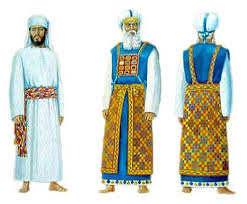
The expectations and standards set for a Levitical Priest was beyond the basic standards for men by Torah.
It is about living a life that is above and beyond the NORM. This is about living and exceptionally righteous life. I would submit to you that failure to meet both the basic and those exacting, exceptional standards and expectations will adversely affect our role and inclusion in the Kingdom of YHVH.
Torah Is NOT Just a Jewish Thing
Many outside of our Faith Community adamantly contend that Torah was created and implemented for the Jews. These maintain that the Jews failed to keep Torah and thus forfeited their opportunity for salvation and that Christians have replaced the Jews in God’s great plan of salvation for mankind. Is this an true line of thought and teaching? Well, when Torah was given to us during our sojourn in the Sinai Desert, and even after we entered the Land of Promise, the bible clearly indicates that all 12-tribes of Israel were subject to Torah. By the first half-of the 6th-century B.C., 10 of our 12-tribes had become scattered by the Assyrians leaving only the tribes of Judah and Levi. Today, the identities and locations of those scattered 10-tribes of Israel are lost to the memory of world history. Interestingly, during the time our Master, Yahoshua and His handpicked disciples walked, taught and preached on this earth, the identities and locations of those 10-tribes was well known to the Jews of the Ancient Near East (Matthew 10:6; 15:24; 9:36; Jeremiah 50:6). Scholars who have attempted to identify some of the lost “Sheep of Israel;” or rather the misnomer “Lost 10-Tribes of Israel,” have found archaeological evidence that is scattered throughout the eastern and western world that many of the scattered peoples have kept Torah to a lesser or fuller extent throughout the ages.
The Pharisaical religious establishment has successfully duped the world into thinking that Torah (and the Land of Promise) was given only to the Jewish nation. Christianity then took this Jewish-only mindset and understanding a few steps further by hijacking and corrupting the concept and doctrines of “grace.” Christianity teaches the “Law” was for those evil Jews who will suffer for their refusal to play by God’s rules, but we Christians are under grace and not required to keep one jot or tittle of the “Law.” By default, the Christian worldview has separated would-be disciples in Yeshua Messiah (thought of mainly as Gentiles) from their naturalized Israeli heritage and Faith that is based upon Torah. Therefore, the hijacked doctrine of grace has unceremoniously completely eliminated Torah as a life-expectation and requirement for any would-be disciple of Jesus Christ (i.e., Yeshua Messiah). This doctrine is not only false, it is also the vehicle by which countless well-intended, sincere, but grossly misinformed souls will NOT be admitted to the Kingdom of YHVH in the World Tomorrow.
None of this is to say, in the least, that a would-be disciple of Jesus Christ (i.e., Yeshua Messiah) receives admittance to the Kingdom of YHVH or eternal life by keeping Torah. To the contrary, eternal life and admittance into the Kingdom is a gift of YHVH that was won and will be delivered as a result of the atoning sacrifice of Yahoshua on the execution stake on that fateful Passover Day on or around 28 C.E. Nevertheless, for the true Disciple of Yeshua HaMashiyach, Torah stands as YHVH’s house rules that every disciple is expected to honor, keep and obey as applicable under the Renewed Covenant.
Torah Expectations and Requirements For Levitical Priests Were Over and Above The Basic Torah Instructions
Abba passed on to Moses (i.e., Moshe) and Aaron (i.e., Aharon) and Aaron’s posterity, the exceptional standards and expectations that would be required in order for the males in Aaron’s lineage to serve the nation of Israel. As we can see throughout the book (i.e., the Cepher) of Leviticus, these standards and expectations were often rigid and were overall, over and above the baseline instructions given for every Israeli male. It was these exceptional expectations and standards set the would-be Levitical Priest apart from the rest of the nation in the manner of:
- His conduct
- His behavior.
- His home life
- His diet
- His finances
- His cleanliness (both physically and ritually speaking)
- His service in the Sanctuary
- His service in the community
- His attire (i.e., his clothing)
- His reputation.
Things to Keep in Mind When Studying Leviticus
When reading through and studying Leviticus and the Levitical Priesthood, it is important to keep the following in mind:
- the Levitical Priesthood has passed away.
- As Torah Observant Believers in Yeshua Messiah, we are no longer under the Levitical Priesthood, but under the Melchizedekian Priesthood whose High Priest (i.e., Cohen Gadol) is our Master Yahoshua Messiah.
- “YHVH has sworn and will not change His mind, ‘You are a priest forever according to the order of Melchizedek'”(Psalm 110:4; cf. Hebrews 5:6; 6:20; 7:15-17).
- As a Torah Observant Believer in Yeshua Messiah, each of us is fully naturalized Israelite possessing all of the privileges and benefits afforded any true, Torah-keeping, naturally-born Israeli Disciple of Yeshua.
- As Torah Observant Believers in Yeshua Messiah, we have been commissioned to be a nation of priests unto YHVH (Revelation 1:6; 5:10; 20:6).
- Like the Levitical Priests of old, as Torah Observant Believers of Yahoshua Messiah, there are rigid, exacting standards and requirements that we are expected to meet and maintain. Those standards and expectations were enumerated, taught and modeled for us by our Master Yeshua.
- As Torah Observant Believers in Yeshua Messiah, we will be judged accordingly by Yahoshua based upon those standards and expectations.
- What good is studying this or any other similar portion of Torah addressing the Levitical Priests?
- Torah provides us an example (although a crude one) of heavenly things and of prophetic shadow pictures of good things to come. (cf. Hebrews 8:5; 10:1)
- We are NOT obliged to keep the instructions directed to the Levitical Priesthood (e.g., wearing priestly clothes; purification rituals; serving in a make-shift sanctuary; etc.).
- Since we are to serve as Priests of YHVH, under the leadership of Yeshua HaMashiyach, these instructions serve as a wonderful reminder of the high standards and expectations a would-be Priest of the Most High Elohim is required to meet and live out.
- Master established similarly established high standards and expectations for us, His Disciples. These standards rival the most exacting requirements of the Levitical Priesthood. THEY ARE NOT EASY.
- These standards and expectations are, in effect, the fullness of Torah, that we are expected to measure up to in our day-to-day lives and in our work for the Kingdom of YHVH. Unfortunately, most of the world will not meet those high standards and expectations. Case in point is the story of the Rich Young Man (Pharisee, found in Matthew 19:13-20:16; Mark 10:13-31; Luke 18:15-30. Here we see a level of commitment and responsibility established by Father and implemented by our Master that disqualifies most from entering the Kingdom and service of YHVH.
We Are A Nation of Priests
Yahoshua has made us to be a kingdom of priests to His Elohim and Father (Revelation 1:6; 5:10). As priests of the Most High, the examples given in Torah relating to the required ritual cleanliness of every Levitical Priests 24-hours a day, 7-days a week, should serve as a reminder to us of our Master’s expectations for us. When these expectations and requirements are understood through the doctrines and teachings of Yeshua our Messiah, we should come to realize how important our personal and spiritual cleanliness is to YHVH. Father requires that we be “holy as He is holy” (I Peter 1:15, 16). That requirement has not changed in the least, despite the Torah naysayers that teach a perverted grace doctrine that inputs upon a Christian believer perpetual cleanliness and holiness. What this perversion is actually saying to the world is that all you need to do to inherit eternal life and have a relationship with the Creator of the Universe is ask Jesus Christ into your heart. Upon asking Jesus Christ into one’s heart, then grace takes over and your eternal life ticket is punched. You can live anyway you choose to live because God’s grace inputs perpetual righteousness to us and we become “holy” by default, forever.
This perverted version of grace is so far from Truth that it’s not even funny. We are required to “be” holy–to live holy lives; to live a life that is beyond the norm of all humanity, or even Christianity for that matter. The Apostle Peter wrote:
Gird up the loins of your mind (Greek for mind is Anazunomi, which means to prepare one’s mind for action); be sober; and hope to the end for for the grace that is to be brought unto you at the revelation of Yeshua Messiah. As obedient children, not fashioning yourselves according to the former lusts in your ignorance, but as He which hath called you is holy, so be ye holy in all manner of conversation; because it is written: “Be ye holy; for I am holy” (I Peter 1:13-16; cf. Leviticus 20:7; KJV).
Thus, we are not to defile ourselves or become spiritually and physically tainted by the things of this world, which when given over to, serves to blunt our service and effectiveness as priests of YHVH. By default, then, we are to die to self (reference Romans 6:2, 11; 2 Timothy 2:11).
Like the Levitical Priests of old, the standards by which we are to live are higher than most people will ever aspire or conceive to meet. Those lofty, but doable standards and expectations, affect how we conduct every aspect of our lives:
- Our family, work, community and other personal relationships
- Our diets
- Our behavior and habits
- Our individual thoughts and feelings
- Our participation in modern life activities
- Our obedience to YHVH’s instructions (i.e., His Torah).
An entire book (i.e., cepher) of Torah was dedicated to instructions for the Levitical Priesthood. The requirement for exacting ritual purity and cleanliness in order for any priest to serve the nation in the community and in the sanctuary cannot be understated. YHVH requires, without exception, cleanliness and purity in order for any to worship and commune with Him. The priestly ritual instructions were primarily in place to allow the priests to serve in the sanctuary and in worship of YHVH. The sanctuary was the place where YHVH’s presence rested. Thus, in order to approach the sanctuary (as a non-priest) and the inner sanctum (as a priest), one had to be in a state of ritual cleanliness.
Although the sanctuary no longer exists, Father still requires that each of us be in a state of cleanliness and purity when we come before Him in worship, prayer and service. We have a baseline cleanliness afforded to us by the shed blood of Yahoshua HaMashiyach. There are, however, ongoing things in our lives that cause us to be impure and unclean that we must constantly be cognitive of and constantly address. Such impurity and filth hinders our worship, walk and witness and service to YHVH and His Kingdom. Intentional and perpetual and unresolved uncleanness (i.e., sin, unholy behavior and habits, improper thoughts and feelings and a lawless life) will adversely impact and hinder, (1) our personal relationship with the Most High Elohim; (2) our service to the Kingdom of YHVH and our Faith Community; and (3) our present and future standing in the Kingdom of YHVH. Yeshua revealed:
“For I say to you that unless your righteousness surpasses that of the scribes and pharisees, you will not enter the Kingdom of Heaven (Matthew 5:20; NASB).
Many will say to me in that day, :Master, Master, have we not prophesied in they Name? And in thy Name, have cast out devils? And in thy Name done many wonderful works?” And then will I profess unto them, “I never knew you: depart from me, ye that work iniquity” (Matthew 7:22, 23).
Yeshua Set the Bar High
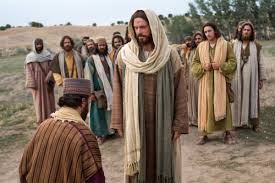
The story of the rich man and Yeshua is an excellent example of the high expectations set for disciples of Yeshua.
Master set the bar high for true discipleship. The sad, sorry and tired adage that so many so-called people of faith like to say, that God knows their heart, just doesn’t fly when one truly considers Master’s true discipleship standards and expectations. For it will be upon that great, end time revealing of the Sons of the Most High, that Yahoshua will separate those who are righteous from those who are unrighteous, and unfortunately for many, there will be no excuse accepted.
Master prophesied:
When the Son of Man shall come in His glory and all the holy angels with Him, then shall He sit upon the throne of His glory. And before Him shall be gathered all nations. And He shall separate them one from another, as a shepherd divideth His sheep from the goats. And He shall set the sheep on His right hand, but the goats on the left. Then shall the King say unto them on His right hand, “Come ye blessed of my Father, inherit the Kingdom prepared for you from the foundation of the world…Then shall say also unto them on the left hand, depart from me, ye cursed into everlasting fire, prepared for the devil and his angels” (Matthew 25:31-41).
Our Master set the bar high for true discipleship and service, just as Father set the bar high for Levitical Priesthood service. Are we then to follow the example of the Levitical Priests, per se? Well, no. The fact of the matter is that we follow exclusively the example of Yeshua HaMashiyach, our Master. The exceptional standards of the Levitical Priests are excellent shadow pictures of the standards and expectations that Master requires of us who are His disciples; we who are being made into a Kingdom of priests unto YHVH; conforming to the image of Yahoshua Messiah.
Faithfully,
Shalom and warmest blessings to you, your family and fellowship.
To Call or Not Call on the Name of the LORD
What Does it Mean? What does it truly mean for a would-be disciple of Jesus Christ (ie., Yahoshua Messiah) to call on the Name of the L-rd? Is it simply an utterance whereby the would-be disciple utters or invokes the actual Name or Title of the Divine One? Or is it a...
Paul-Emancipator or Subjugator of Women-Part 6 of the Paul and Hebrew Roots Series
This is Part 6 of our multi-episodic series on Paul and Hebrew Roots. This installment is entitled: “Paul: Emancipator or Subjugator of Women.” I Corinthians 14:34, 35, and 1 Timothy 2:11,12 have long challenged my sensibilities and understanding of how women are to...
No Pagan Links to Catholicism and Christianity
Pagan Links to Catholicism and Religion in Doubt I have, of late, become somewhat concerned over what I see as growing support by a good many leaders within and without our Faith for there being no pagan links to Catholicism and Protestant Christianity. And how are...
Paul Opposing God On Issue Of Circumcision?
A Matter of Circumcision or No? As I was watching Kenny Russell's (Bulldozer Faith) most recent Sabbath teaching entitled "Press On!," the text of which he based his message being Philippians 3, I became fixated on verses 2 and 3 of that chapter. It is here that Paul...
My Last Word on the Cepher Bible and the Divinity of Yeshua–At Least Till Next Time
Why Discuss the Cepher Bible Yet Again So I elected to do a rather quick reiteration--albeit last word on the Cepher Bible and the Divinity of Yeshua. At least, until the issue comes up, let's just say. Over the last year or so I've received a number of inquiries...

Paul on Aggadah–Part 5 of Paul and Hebrew Roots Series
Paul on Aggadah—Part 5 of the Paul and Hebrew Roots Series Let us quickly recall from Part 4 of this series that Aggadah is that unseen/invisible aspect of our lives that prompts or influences or even controls our behavior; in particular,that inward motivation, zeal,...
The Meaning Behind The Recent Dedication of an Altar in Jerusalem
If you’ve been keeping up with world news of late, you may know (or not) that the resurrected Great Sanhedrin, headquartered in Jerusalem, sanctioned a Levitical offering of a previously sacrificed lamb upon a practice altar somewhere in Jerusalem. (Yes, there really...
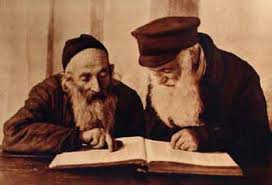
Paul on Halakhah and Aggadah–Part 4 of the Paul and Hebrew Roots Series
Paul on Halakhah and Aggadah Last installment, or Part 3 of this series, I introduced to you the Hebrew concept of Halakhah. In that discussion, I attempted to not only define what halakhah meant, but I also attempted to convey the significance of...
A Biographical Portrait of the Pre-Converted Paul and Halakah–Part 3 of the Paul and Hebrew Roots Series
Review of Parts 1 and 2 of this Series Over the course of the last two installments of this series, we have been laying the groundwork for assembling our portrait of the Apostle Paul prior to his conversion. In the first two-installments we discussed: Why it is...
To Fellowship Or Not Fellowship
A Nagging Question To fellowship with a group of Sabbath-Feast-keepers or not has been a question plaguing me for the last couple weeks. A couple months ago we were invited to fellowship with this group. Now, know that this is NOT a question whether to participate...
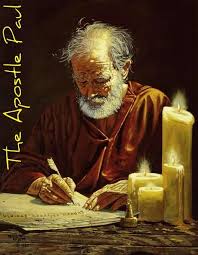
Paul-The Man Beneath the Apostleship–Part 2 of the Paul and Hebrew Roots Series
If you've not already done so, I invite you to listen to or read Part 1--Paul, the Man Beneath the Apostle, before moving in to this installment. Apparent Biblical Contradictions and Controversies Before we address the person of Paul straight-on today, I...

The Apostle Paul–Part 1-The Man Beneath the Apostleship
My Goal For This Series Thank you for joining me for Part 1 of this multi-episodic series on The Apostle Paul. This being part-one of the series, we'll lay the ground-work for understanding the man beneath the apostleship. In succeeding installments,...
Who or What is a Messianic Torah Observer?
Inquiring Minds Want to Know I've received a number of email inquiries over the last couple years from various listeners and readers asking the meaning of the title "The Messianic Torah Observer." Allow me to break this bad-boy down for you. To begin with, I...
The Fall Feasts of Yah-The Feast of Tabernacles-The Feast of Sukkot
And greeting fellow Saints of the Most High Elohim. Welcome to The Messianic Torah Observer. I'm Rod Thomas, your host. And as always, it is my sincerest hope, trust and prayer that this installment of the program finds you, your families and fellowships well and...
The Fall Feasts of Yah–The Day of Atonement–Yom Kippur
The Fall Feasts of Yah and the Torah Observant Disciple of Yeshua As Torah Observant disciples of Yahoshua Messiah we are truly blessed to have the joyous elements of our beloved Faith to keep us focused on the mark of the high calling of Messiah. And as I said...
The Fall Feasts of Yah-Trumpets-Yom Teruah
The Fall Feasts are upon us and the Day of Trumpets (Yom Teruah) has at our doorsteps. What significance do the Fall Feasts and the Day of Trumpets hold for Torah Observant Believers in Messiah? What follows is a brief overview of the Fall Feasts of Yehovah and a...
Tithes and Offerings Related to Torah and Messianics
This week’s Torah Reading touched upon the Firstfruits’ offering and the Tithe. The Firstfruit Offering or Tithe (Dt. 26:1-11) The issue and topic of giving offerings and tithing are always controversial, both within and without our Faith Community. As Torah Observant...
Messianics Engaged in Political and Social Activism
A speaker at a recent prophecy conference denounced apathy in the body of Christ and demanded Christians wake-up from their apathy and engage in political and social activism, so to speak. Given the mixed Faith Communities represented at this conference,...
Torah Portion Re’eh–See–I Set Before You a Blessing and a Curse
Torah Portion Re'eh--(See) I Set Before You a Blessing and a Curse--11:26-16:17 This week's Torah Reading, entitled “Re’eh” or “See—I Set Before You a Blessing and a Curse,” is found in Deuteronomy 11:26-16:17. I found this reading to be rich in...
Torah Portion ‘Ekev–On the Heel Of–Because
This week's Torah Portion (i.e., Reading/Parashat) was entitled, 'Ekev--On the Heel Of--Because. It is found in Deuteronomy 7:12-11:25. [If you follow the Torah Portions or Readings, I invite you to check out my post entitled, "Hebrew Roots and Torah Portions--Are...
Torah-Keeping–When it is Practiced in Sin
This Week's Torah Reading--D'varim This week's Torah Reading was D'varim. A section of it addressed our eventual abandonment of Father's Torah after we were established in the land. As a result of our abandonment of Torah, the land would be overrun by Gentiles and we...
As It Was In The Days of Noah
Do recent advancements in DNA manipulation and Artificial Intelligence portend the return of Yahoshua Messiah? Are they elements of modern day spin-offs to the Days of Noah? Each week it seems, we receive more and more disturbing news about the existential dangers...
Sacred Oaths and Vows–The Wages of Sin–The Spoils of War
In today’s post, I wish to reflect upon elements of this week’s combined Torah Portions entitled Mattot (or Tribes) and Masei (or Journeys). This Portion ends our journeys through the Book of Numbers and sets the stage for our historic and long-awaited conquest of the...
The Red Heifer–Parashah 39–Hukkat–Numbers 19
I pray that you had a meaningful Sabbath Rest. This week's Torah Portion was yet again an amazing journey into the Things and Ways of YHVH that defy anything that humanity could ever imagine. This 39th Portion addresses the "Mystery of the Red Heifer," which is a...
Hebrew Roots and Torah Portions–Are Torah Portions Valid for Messianics
I have always been one to think: if one person has a question on a particular topic or issue that I have posted on this program, it stands to reason that there are others out there who have the same question. Recently I received feedback from a dear listener of this...
Messianic Lessons From The Revolt of Korah
The Players of this Torah Portion The players of this passage are: Moshe, Aharon (Cohen Gadol); Korah (a Levite of which he and his family and lineage served with the Aaronic Levitical Priesthood--he was not a priest but a most blessed assistant and servant to YHVH);...
Impediments to our Faith-Absence of Discipleship and the Holy Spirit Operating in the Lives of Believers (Part 2)
It goes without saying that many of us have a difficult time grasping the things of YHVH, especially when we first transition into our Faith Community. It’s one thing to decide to give up pork and shell fish and to start worshiping on Sabbaths as opposed to...
Yeshua Messiah (aka Jesus Christ) as our Apostle and High Priest
During my morning studies today I was led to pick up where I left off from this past Sabbath's Brit HaDashah reading that is found in Hebrews 3:1-6. Interestingly enough, roughly 1-1/2 to 2 hours after beginning the study, I had not progressed beyond verse one. For...
Messianics Dedicated to Service
This Week's Torah Portion-Beha'Alotekha-The Menorah On this Shabbat, I was blessed to read and reflect upon this week's beautiful Torah Portion entitled Beha'Alotekha-The Menorah. The portion was contained in Numbers, chapters 8 through 12, And I don't know if it's me...
Impediments to our Understanding Things of the Faith–Part-1–Understanding the Bible
Many of us have a hard time grasping the things of YHVH. There seems to be impediments to our receiving, understanding and applying the things of our Faith. Indeed, there are many impediments that we could explore. However, for this post we will consider those...
The Torah Observant Believer in Yeshua Messiah as Slave
Paul opens his letter to the assembly of Messianic Believers in Rome with an introductory bio of himself. He writes: "Paul, a bond-servant of Christ (i.e., Messiah) Yeshua, called as an apostle, set apart for the gospel of God (i.e., Yah)..." (Romans 1:1; NASB). Other...
Keeping Shavuot–The Feast of Weeks–Pentecost–Its Importance and Meaning to Messianic Believers Today
For the Torah Observant Believer in Yeshua Messiah, Shavuot—The Feast of Weeks—Pentecost is about the giving and receiving of YHVH’s Torah and the establishing of the marriage covenant between YHVH and the Children of Israel. The Feast of Weeks is about...
Feast Pilgrimages to Israel–Messianic Lessons Learned from Shemitah
Pilgrimages to Israel for the Feasts of YHVH Question Posed: Are We Suppose to Conduct a Pilgrimage to Israel Today? The question has been posed and sadly has been incorrectly answered some: Are we obliged to keep Unleavened Bread, The Feast of Weeks...
Biblical Illiteracy Behind the Anti-Hebrew Roots Agenda
Is Biblical Illiteracy behind the Anti-Hebrew Roots Agenda these days. In this post I reflect upon a recent experience I had on Facebook that suggested to me that Biblical Illiteracy may, in part, be behind the animus Christians have towards our Hebrew Roots/Messianic...
A Call for Unity in the Body of Christ/Messiah
By virtue of our role as disciples of Yahoshua Messiah (Jesus Christ), we are called to be a united and unified body of believers in every respect. Just as Master was united with His Father, we too must be united with the Father, our Master and with one...
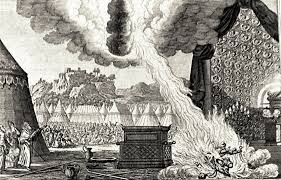
When Tradition Eclipses Torah
My Torah Portion Observation of the Week I was profoundly moved by the section of this week’s Torah portion that recorded what on the surface seemed the very harsh and violent encounter we had with YHVH. It was Parashah 26: Sh’mini, Eight and I wish to briefly...
Day of Firstfruits and Keeping the Sabbath Holy
Keeping the Day of Firstfruits The Day of Firstfruits is a little known or publicized feast in our Faith Community. Firstfruits is also referred to as Yom haBikkurim (Hebrew) and the Wave Sheaf Offering. It is sandwiched into the week of...
Our First Passover–A Survey of Exodus 12 and 13 and How it Applies to Us Today
Passover Like All Feasts are Shadows of “Good Things to Come” Passover and the Feast of Unleavened Bread, embodied and explained to us in Father's Torah, was aptly described by the writer of the Book of Hebrews as "Shadows of Good Things to Come:"...
Select Your Passover Lamb
I'm Reminded I’m reminded when looking over our copy of the Hebrew Observational Calendar that today is the day that we would select the unblemished animal of the first-year that would serve as our paschal lamb. Choosing a Lamb Today Certainly, today, the vast...
Observing and Guarding the Month of Aviv–How to Observe and Guard the Month of Aviv
Torah Instruction to Guard In Deuteronomy 16:1-3 Abba instructed us to “observe (i.e., shamar—guard) the Month of the Aviv,” and keep the Passover unto YHVH our Elohim.” Because in the Month of the Aviv YHVH brought us forth out of Egypt by night. What...
Torah Portions and the Body of Christ (Messiah)
My Love and Concern of Torah Portions I personally love the Torah Portions system for a number of reasons, including reasons associated with connecting with other like-minded Messianic believers who appreciate the Torah Portion system as well. Certainly, there are few...
All Things Are Lawful For Me
"All Things Are Lawful For Me..." (The Apostle Paul to the Corinthian Assembly of Messianic Believers) Well, I’m going to take a slight break from our series on the plurality of the Godhead series to tackle one of the Apostle Paul’s many difficult passages that the...
Are the Father and Son the Same Person (Part 2)–Genesis 1 and Elohim Proof in the Trinity or Not
The question has been posed countless times: Are the Father and the Son one and the same Person? In this second part of the series we reflect on Genesis chapter one, specifically the term/title Elohim in our search for an answer to this question. Pluralists contend...
Are the Father and the Son the Same Person?
The Billion Question In this installment of Sabbath Thoughts and Reflections we will begin tackling one of the biggest and most frequently posed questions by members of our Faith Community: Is the Creator—God—Yahovah/Yahweh/Yahuah and the...
Five Things Every Believer Should Consider About Christmas (104)
Preface Let's consider five things every Messianic should know about Christmas. Indeed, there are numerous other things to consider beyond this simple list of five, but these five constitute a great starting point. Christmas now being upon us, I felt that I would be...
What Does Climate Change Really Mean From A Hebrew Roots Perspective?
Global Warming/Climate Change Make the News Anyone who has kept up with the news over the last decade or so should be somewhat familiar with the subject of "global warming," recently changed to "climate change." In case this subject is a little foggy in your mind,...
Hanukkah and the Torah Observant Believer in Yeshua (Installment 103)
To Observe Hanukkah or Not Observe Hanukkah Today's Thought and Reflections topic is season appropriate and it has to do with Hanukkah and its significance to the Torah Observant Believer in Yeshua. Obviously, some of you do not observe or celebrate Hanukkah, and...
Are We Heading for Heaven or Staying on Earth When Yeshua Messiah Returns? (Installment 102)
Are We Heading for Heaven or Staying on Earth When Yeshua Messiah Returns? Question: Are We Heading for Heaven or Staying on Earth When Yeshua Messiah Returns? In keeping with our renewed aim to include a question and answer session in Sabbath Thoughts and Reflection...
Should Torah-Keeping Believers in Yeshua Celebrate Thanksgiving?
Thanksgiving and the Torah-Keeping Believer in Yeshua Messiah. In this installment, we reflect upon Torah-Keeping Believers in Yeshua celebrating Thanksgiving: Is it a terrible reminder of genocide that New World Settlers brought upon Native American Indigenous...
Understanding our Call and Purpose-The Wilderness Experience
Understanding Our Call and Purpose Through a Wilderness Experience Do you truly understand your call and purpose? Maybe you're a new to the Hebrew Roots/Messianic Faith and you have no idea where to go from here. Or maybe you've been in the Faith for a while but have...
Leaving the Hebrew Roots Faith Lured by Seducing Spirits
Leaving the Hebrew Roots Faith Lured by Seducing Spirits In this installment we reflect upon a recent Zachary Bauer posting related to folks leaving Hebrew Roots after being lured by doctrines of seducing spirits. Taken Aback I was quite taken aback after viewing a...
The 500th Anniversary of the Protestant Reformation
Netsarim/Netsari Defined The term or title Netsari and Netsarim have been making and floating about the Hebrew Roots/Messianic Faith Community for a few years now, slowly catching in popularity and distinction. The reason I use Netsari and Netsarim to refer to us as a...
Feast of Tabernacles 2017 Thoughts and Reflections
What is the Best Way to Witness to Non-Torah-Keepers? Right and Wrong Ways to Witness This is probably one the most frequently asked questions that I have received over the years, and to be honest, there is no true right answer to the question. I do believe that there...
How to Correctly Keep Yom Kippur
How to Correctly Keep Yom Kippur Believers Want to Know How to Keep Yom Kippur Correctly We have brethren in our Faith Community who are seeking Truth and want to understand when and what Yom Kippur is and how to properly observe and celebrate the day. As mature Torah...
Day of Trumpets—Yom Teruah—Rosh Hashanah—Subject to God or to the Rabbis?–STAR-95
The Calender: Friday 9-22-2017—Yom Teruah—Day of Trumpets Sunday 10-1-2017—Day of Atonement—Yom Kippur Friday 10-6-2017 through Friday 10-13-2017—Feast of Tabernacles—Sukkot Commentary: The World is Falling Apart and Coming to an End Although the Day of Trumpets is...
Overcoming the Cares of Life–STAR-94
The Cares of Life—For Some a Daily Challenge; For Others A Frequent Distraction From a general, let’s say, secular standpoint, the cares of life (or cares of this world as interpreted by some Bible translations) are the many elements of everyday...
The Bible-The Answer to Every Concern or the Ultimate Instruction Manual-STAR-92
Thoughts and Reflections Part 1: The Great Book Known as the Bible The Bible--The Holy Writ--The Word--The Word of God--The Sword--The 66-Special--The Book--The Good Book: these and many more are the descriptors and titles of arguably the most famous and well known...
Witnessing to Non-Believers-Is Keeping Torah Even Possible–Is Tithing a Burden–Does Prayer Purify Forbidden Foods–STAR-91
Thoughts and Reflections Part 1: Closing Thoughts on the Issue of Controlling Our Emotions I just want to put forth some closing thoughts on emotions and the problems that emotions can cause us in walking and living out this walk. Episodes 87 through 90, I reflected...
Controlling Our Emotions for the Work of the Gospel–STAR-90
Shabbat Shalom fellow saints in training. Greetings and blessings to you on this day that Yahuah our Elohim has made—one that we were admonished by the psalmist to be glad and rejoice in it. This is especially so given that the Sabbath is a most sacred day to us Torah...
The Rule of Emotions Over the Lives of Certain Christians-STAR-89
Part-1--The Rule of Emotions Over the Lives of Certain Christians In following up with my last Sabbath Thoughts and Reflections post (episode 88—”When Tradition Overrides Truth and Reason”), I explored how some of the traditions of the church (namely the modern...
When Tradition Overrides Truth and Reason–Sabbath Thoughts & Reflection-88
KJV Mark 7:1 Then came together unto him the Pharisees, and certain of the scribes, which came from Jerusalem. 2 And when they saw some of his disciples eat bread with defiled, that is to say, with unwashen, hands, they found fault.1 3 For the Pharisees, and all the...
Making a Case to be Holy–Sabbath Thoughts and Reflections–87
A Case for Holiness As I was conducting my Torah studies week-before-last, I came to Exodus, chapter 19. This of course, is a well-known passage of Torah to our community, for it is the place that marks that point in our history that we officially received our...
Why Aren’t We Wearing Tzitzits or Fringes?
38 "Speak to the sons of Israel, and tell them that they shall make for themselves atassels on the corners of their garments throughout their generations, and that they shall put on the tassel of each corner a cord of blue. 39 "It shall be a tassel for you 1to look at...
Post Passover–Feast of Unleavened Bread Thoughts and Reflections–STAR-85
This is Sabbath Thoughts and Reflections—Episode 85—My Post-Passover-Feast of Unleavened Bread Thoughts and Reflections Greetings fellow Saints in Training. I am trusting that this episode of Sabbath Thoughts and Reflections finds you, your families and...
Interpreting the Bible Literally and Eating Unleavened Bread for 7-Days?
Feast of Unleavened Bread--Thus Saith the LORD! As is my typical custom during this time of the Biblical Calendar year, i read and re-read Torah's account and instructions regarding the Passover. What I especially enjoy doing, though, is reading entire passages of...
One of the Greatest Passover Mysteries of the Ages Revealed-STAR-84
The Greatest Passover Mystery of the Ages is Found in the Knowledge and Understanding of Who Yeshua HaMashiyach Is. For some strange reason, a rather sizable chunk of Rooters seem to be more focused upon the mechanical observance of Passover than upon the revealed...
Operating Effectively as a Disciple of Master Yeshua Today–Episode-83
Before moving in to the focal point of this thoughts and reflections episode, I want to first touch upon one housekeeping item if you don’t mind. Last week on 3/29/2017, we began a new calendar year. We celebrated--or should have celebrated, Biblical Rosh...
Is Cooking on the Sabbath Prohibited by God and Torah-Pastors in a Credibility Crisis-STAR-82
Calendar: Just 1-1/2-weeks out from Rosh haShanah presuming the barley is Aviv and the renewed moon is sighted over the land of Israel concurrently. Rosh haShanah is the Torah Observant Believer in Yeshua Messiah's New Year Day! and signals the start of the Spring...

Identity Crisis in Hebrew Roots–Sabbath Thoughts and Reflections–Episode-81
Now then, if you will indeed obey My voice and keep My covenant, then you shall be My own possession among all the peoples, for all the earth is Mine; and you shall be to Me a kingdom of priests and a holy nation...But you are A CHOSEN RACE, A royal PRIESTHOOD, A HOLY...
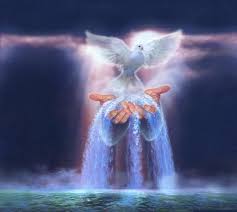
Hebrew Roots Worshiping God in Spirit and in Truth
Hebrew Roots Worshiping God in Spirit and in Truth Let's reflect upon the topic of worshiping Abba in Spirit and in Truth as it relates to our Hebrew Roots Faith. This will be part 3 of my multi-episode series on operating and walking out this walk in the Spirit. If...
Spiritual Transfer of Power–Sabbath Thoughts and Reflections–Episode-78
"Finally my brethren, be strong in Yahuah and in the power of His might. Put on the whole armor of Yah that you may be able to stand against the wiles of the devil. For we wrestle not against flesh and blood, but against principalities, against powers, against...
Israel and the U.S.-Best of Friends, Right? Sabbath Thoughts and Reflections-Episode 76
Israel and the United States--Best of Friends, Right? This is Sabbath Thoughts and Reflections--Episode 76 By now, anyone who keeps up with world events will know of the most recent United Nations Security Council Resolution. But in case you've been distracted with...
Falling in Love with Christmas all Over Again-Part 2–STAR-75
KJV Jeremiah 10:1 Hear ye the word which the LORD speaketh unto you, O house of Israel: 2 Thus saith the LORD, Learn not the way of the heathen, and be not dismayed at the signs of heaven; for the heathen are dismayed at them. 3 For the customs of the people are...
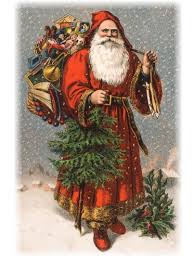
Falling in Love with Christmas all Over Again Part 1-STAR-74
Are we falling in love with Christmas all over again? This is part 1 of what i hope will be just a two part series on this issue. Christmas Posing A Crisis of Faith in the Hebrew Roots Community I believe our community is in, at a minimal, what I've chosen to call "a...
Compassion and Yeshua Messiah–Sabbath Thoughts and Reflections-73
Compassion and Yeshua Messiah Part 2 of my Divinity of Yeshua Messiah Series--Sabbath Thoughts and Reflections Episode 73 In this episode of Sabbath Thoughts and Reflections, I wish to examine the the Godly attribute of Compassion and Yeshua Messiah. This topic stems...
The Divinity of Yeshua Messiah-Part 1
The Divinity of Yeshua Messiah-Part 1 Sabbath Thoughts and Reflections-72 Visitor’s Comment on the Cepher Bible Episode A few weeks ago I received a comment from a visitor to themessianictorahobserver.org that I felt needed to be aired and discussed. The commenter was...
Sharing Hebrew Roots with Christians—The Lunar Sabbath Debacle—America Spotlighted in Deuteronomy 32
Sabbath Thoughts and Reflections Episode 70 Day of Atonement Just a day or so out from Day of Atonement (aka Yom Kippur)—a most solemn day of rest for our Faith where we fast and pray and reflect upon our lives and the past year. Prophets sight this Day of...
Are We Seekers of God or Torah Observers?
Sabbath Thoughts and Reflections-Episode-69 A Probing Question For this episode of Sabbath Thoughts and Reflections, I have been led to share a comment left by a visitor to our website. That comment--more a question than a comment I should say--seemed to call into...
Rejected by Family and the Hebrew Gospel of Matthew–Sabbath Thoughts and Reflections-68
Rejected by Family and the Hebrew Gospel of Matthew Sabbath Thoughts and Reflections-68 Master Yahoshua was rejected by the very people He grew up. All indications are that Master's hometown rejected His Messianic works and wisdom because they could not get past His...
A Broken Heart and Contrite Spirit Gets God’s Attention–Sabbath Thoughts and Reflections-67
A Broken Heart and Contrite Spirit Gets God's Attention A Question of Numbers--Affiliation--Religion--Or Something Else “With all the billions of people in the world—believers and non-believers alike—what makes me stand out from all the others? What makes...
Hollywood and Atheism
Hollywood and Atheism Atheism is Alive and Well in Hollywood I came across an article the other day that just solidifies for me how shallow some of the more elite of us are in our western society. When it comes down to the question of "do you believe in God?" I...
How Must We Deal with a World that is in Chaos–Sabbath Thoughts and Reflections–Episode 66
How Must We Deal with a World that is in Chaos? Sabbath Thoughts and Reflections—Episode 66 Vanity of Vanities for all is Vanity! Well, unless you’ve been completely off the grid—that is, in complete seclusion without access to news of any sort—you are no doubt...
Will the True God of the Old Testament Please Stand-Up–Sabbath Thoughts and Reflections–65
Will the True God of the Old Testament Please Stand-Up? The so-called God of the Old Testament: This is somewhat of the focus of this episode/post. As I completed chapter 24 of Deuteronomy in my Torah studies this week, I came to realize that we serve a most loving...
The Costs of True Discipleship–A Hebrew Roots Perspective–Sabbath Thoughts and Reflections–64
The Costs of True Discipleship A Hebrew Roots Perspective Sabbath Thoughts and Reflections--Episode 64 Opening Passage: 28 For which of you, desiring to build a tower, doth not first sit down and count the cost, whether he have wherewith to complete it? 29 Lest...
What Must Our Focus Be in Hebrew Roots–Sabbath Thoughts and Reflections–63
[podcast src="https://html5-player.libsyn.com/embed/episode/id/4475152/height/90/width/480/theme/custom/autoplay/no/autonext/no/thumbnail/yes/preload/no/no_addthis/no/direction/forward/render-playlist/no/custom-color/88AA3C/" height="90" width="480"] What Must Our...
The Mixing of Seeds in our Faith–Sabbath Thoughts and Reflections–Episode-62
[podcast src="https://html5-player.libsyn.com/embed/episode/id/4455245/height/90/width/480/theme/custom/autoplay/no/autonext/no/thumbnail/yes/preload/no/no_addthis/no/direction/forward/render-playlist/no/custom-color/88AA3C/" height="90" width="480"] The Mixing of...
The Value of Life According to Yahovah–Sabbath Thoughts and Reflections 59
[podcast src="https://html5-player.libsyn.com/embed/episode/id/4423863/height/90/width/480/theme/custom/autoplay/no/autonext/no/thumbnail/yes/preload/no/no_addthis/no/direction/forward/render-playlist/no/custom-color/88AA3C/" height="90" width="480"] The Value of Life...
Pope Francis and the Spirit of Anti-Messiah–Sabbath Thoughts and Reflections–Episode 58
[podcast src="https://html5-player.libsyn.com/embed/episode/id/4405449/height/360/width/480/theme/standard/autoplay/no/autonext/no/thumbnail/yes/preload/no/no_addthis/no/direction/forward/" height="360" width="480"] Pope Francis and the Spirit of...
Counting Omer and a Question of Circumcision–Sabbath Thoughts and Reflections Episode 57
[podcast src="https://html5-player.libsyn.com/embed/episode/id/4384332/height/360/width/480/theme/standard/autoplay/no/autonext/no/thumbnail/yes/preload/no/no_addthis/no/direction/forward/" height="360" width="480"] Counting Omer and a Question of Circumcision...
The World Loves Baal (aka Nimrod)–Sabbath Thoughts and Reflections–Episode 56
The World Loves Baal (aka Nimrod) Sabbath Thoughts and Reflections--Episode 56 In this episode of Sabbath Thoughts and Reflections, I reflect upon the realization that the world loves Baal (aka Nimrod). This comes to mind in light of a couple YouTube videos that I...
10-Key Teachings of Yeshua Messiah Leading Up To Passover–Sabbath Thoughts and Reflections 55
10-Key Teachings of Yeshua Messiah Leading Up To Passover Sabbath Thoughts and Reflections--Episode 55 The week leading up to His sacrifice on the execution stake, Yeshua Messiah delivered a number of key teachings to us, contained in the Gospel Record. I selected 10...
Purim–The Providence of God–Sabbath Thoughts and Reflections Episode 54
Purim--The Providence of God Sabbath Thoughts and Reflections--Episode 54 In Purim-The Providence of God: Then Mordekai commanded to answer Hadassah: “Think not with yourself that you shall escape in the king’s house more than all the Yahudiym. For if you altogether...
Purim–Mourning in Sackcloth and Ashes–Sabbath Thoughts and Reflections 52
Purim--Mourning in Sackcloth and Ashes Sabbath Thoughts and Reflections 52 Well, we can say that we’re still in the Purim season as we work through the latter half of this Adar Bet—the 13th Month of the Biblical Calendar year—and I would refer you to STAR...
Is the Hebrew Roots of the Christian Faith in a State of Crisis? STAR 50
Is the Hebrew Roots of the Christian Faith in a State of Crisis? Sabbath Thoughts and Reflections Episode 50 Well, I have to tell you, I was hard-pressed and set to continue with the Purim series for this posting when I got tangled up with thoughts on the...
What do you Mean the Barley is not Aviv? Sabbath Thoughts and Reflections 49
GUARD the month of Aviyv, and keep the Pecach unto Yahovah your Elohim: for in the month of Aviyv, Yahovah your Elohim brought you forth out of Mitsrayim (that is Egypt) by night. (Deuteronomy 16:1) as I am publishing this episode, which I believe to be a very...
Purim-Haman, the Anti-Christ (aka Anti-Messiah) Cometh–STAR-48
Purim-Haman, the Anti-Christ (aka Anti-Messiah) Cometh Sabbath Thoughts and Reflections-48 Chapter 3 Verse 1 (cf. 5:11) Haman is advanced by Achashverosh to the rank, according to JFB, of vizier or prime confidential minister Achashverosh establishes Haman’s authority...
Thoughts and Reflections on Purim–Yahovah’s Providence Over the Will of Man and Satan–Sabbath Thoughts & Reflections 47
Thoughts and Reflections on Purim--Yahovah's Providence Over the Will of Man and Satan Sabbath Thoughts & Reflections 47 As I reflect and put together this episode, we find ourselves on the 11th Day of the 12th Biblical Month known to some as Adar. The next...
The Cepher Bible–A Violation of Torah? Sabbath Thoughts and Reflections 46
The Cepher Bible--A Violation of Torah? Sabbath Thoughts and Reflections Episode 46 Therefore let no one pass judgment on you in questions of food and drink, or with regard to a festival or a new moon or a Sabbath. These are a shadow of the things to come, but the...
Praying to the Man Upstairs? Really? Torah Living Daily Challenge–Episode 35
Praying to the Man Upstairs? Really? Torah Living Daily Challenge—Episode 35 As I was driving into the office this morning, I was listening to one of Southern California’s 24-7 news radio stations as I often do to get a sense of what’s happened in the world over...
Spiritual Darkness in the Desert–Sabbath Thoughts and Reflections 45
Spiritual Darkness in the Desert--Sabbath Thoughts and Reflections 45 Territorial Spirits in Las Vegas? Biblical Calendar The writer of Psalms got this principle and I believe it is only by the Ruach--the Spirit--of the Most High that he was led to write this...

0 Comments